Property tax in Greece for foreigners (UK guide)
Read our essential guide to property tax in Greece for foreigners and UK expats, including taxes on buying, selling and renting out property.

Looking to buy a property in Vietnam? Perhaps you’re planning to move there from the UK, or are interested in buying a holiday home or investment property.
Whatever your plans, we’re to help - with an essential guide to buying property in Vietnam as a foreigner.
Read on for everything you need to know, starting with how the process of buying property works in Vietnam. We’ll also cover fees and taxes, mortgages, and the latest average property prices in Vietnam.
If you’re looking for ways to save money on currency exchange when buying property in Vietnam, check out the money services provider Wise. You can send large transfers with Wise for low fees* and great exchange rates - making it ideal if you’re sending a secure international transfer.
Before you start your house hunt, it can be useful to know a little about how the process of buying property works in Vietnam.
Here’s a quick overview of the steps involved:¹
The process of buying property in Vietnam may be quite different to what you’re used to in the UK. There’s also the language barrier to overcome.
So to make sure you understand the process, protect your interests and avoid any pitfalls, it’s a good idea to find and appoint a solicitor.
Look for someone who speaks both English and Vietnamese, with experience in Vietnamese property law and the local market.
The next important step is to get your finances in order. You need to set your budget and organise the finance for your purchase (i.e. a mortgage with an Vietnamese bank or refinancing an existing property with a UK bank to release funds).
You should also aim to define exactly what you’re looking for, focusing on the type of home, location and property price bracket.
To find your dream home, you can use online property portals and/or local estate agents to find properties. We’ll run through some tips later on how and where to start your search.
If you see something with potential, arrange a viewing as soon as you can, and start researching the area in the meantime.
If you’re considering making an offer on a property, it’s important to carry out some checks on it first. Have your solicitor verify the following:
Once you’ve found your dream home, you can instruct your solicitor to make and offer and negotiate the terms of the purchase with the seller.
Once everyone is happy, you can sign a reservation agreement. You may also be required to pay a deposit to secure the property while the sale details are finalised.
The next step is to sign the Sales and Purchase Agreement (SPA) in front of a notary. This is a legally binding contract for the sale, which sets out everything from the purchase price to the payment schedule.
In Vietnam, payment for property usually happens in instalments, rather than all in one payment at completion.
You’ll agree on a payment schedule in the SPA, so now it’s time to finalise your mortgage (or other financial arrangements) and set up the transfers according to the schedule.
The final steps involve making the last payment and ownership of the property being officially transferred. This happens when the land-use right certificate (LURC) is updated with your details as the new owner.
And then all that’s left is for you to pick up the keys to your new home.
| 💡 Read more: The best UK banks for sending money abroad |
|---|
Some Vietnamese banks and providers offer mortgage loans to foreigners, but the conditions, requirements and rates may differ compared to how it works for locals.
For example, you might be asked to provide more extensive documentation as part of your application, or you may only be able to access less preferential interest rates.
The requirements for application will vary between banks, but generally you’ll need valid ID, proof of salary/employment and the details of the property you’re buying.
It’s not absolutely essential to have a Vietnamese bank account or international account in order to get a mortgage, but it might make the process easier.
Alongside the property purchase price, you also need to budget for the fees and taxes which may apply to the transaction.
Here are the essential costs you need to know about:²
You should also factor in estate agent fees (if not paid by the seller), legal costs and fees associated with your mortgage.
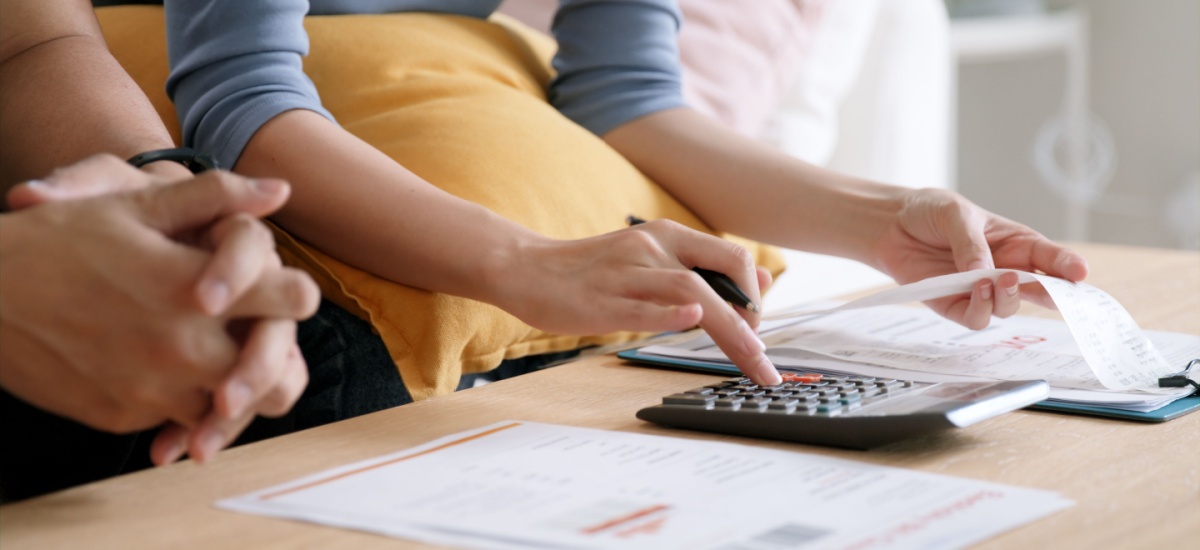
Vietnam’s property market is in a pretty healthy condition, having experienced significant growth and development in recent years. This has been driven by a combination of increased demand (especially for residential properties) and falling interest rates.
The government has also brought in policies to incentivise investment in the sector, alongside increased foreign investment.
This is all happening to a backdrop of strong economic growth for Vietnam as a country.³
Yes, foreigners can buy property in Vietnam, but there are a number of important restrictions you need to know about.
Firstly, you can only own buildings as a foreign citizen - not the land itself. Instead, you’ll need to enter into a long-term (i.e. 50-70 years) leasehold agreement. You may have the option to renew the lease when the initial term expires.⁴
You can buy an apartment within a commercial housing project, but foreign ownership is usually capped at around 30%.⁴
The good news though is that you don’t necessarily need to be a resident of Vietnam to buy property there.⁴ This means you may be able to buy a holiday home or investment property while still in the UK.
No, there’s no direct route to permanent residency through the purchase of property in Vietnam.²
The pathways to residency aren’t linked to investment in property. Instead, they involve options such as employment, business ventures and links to Vietnamese citizens.
Now for the important question - how much does property cost in Vietnam?
The good news is that average property prices are around 56% to 68% cheaper per square metre in Vietnam compared to the UK, depending on whether you buy in or outside of a city centre.⁵
To narrow it down a little further, here’s a guide to what you can expect to pay per square metre in a couple of Vietnam’s major cities:⁶
| City | Average apartment price per sq.m in GBP - city centre | Average apartment price per sq.m in GBP - outside city |
|---|---|---|
| Ho Chi Minh City | £3,143 | £1,564 |
| Hanoi | £2,239 | £1,226 |
Remember though that property prices will also vary depending on the type of property.
Another thing to note when figuring out the price for property in Vietnam is that international transfers could get expensive, especially if the provider adds a margin to the exchange rate to convert your pounds. Consider checking out Wise to securely handle your large transfers with mid-market exchange rates and low, transparent fees*.
If you’re property hunting on a budget, you might want to check out the property market in places like Dalat, Hoi An and Phu Quoc.²
All are known for relatively affordable property prices, compared to major cities like Hanoi and Ho Chi Minh city.
The two main routes to find property to buy in Vietnam are local real estate agencies and online property websites.
It isn’t necessary to use a real estate agent to find a property to buy overseas. But it can be helpful, especially if you’re moving to Vietnam from the UK and are unfamiliar with the local property market.
Just make sure you do thorough checks of any agents you’re dealing with - your solicitor may be able to help with this.
You can also search for property in Vietnam online, from the comfort of your current home in the UK.
Here are some popular local real estate websites to check out:
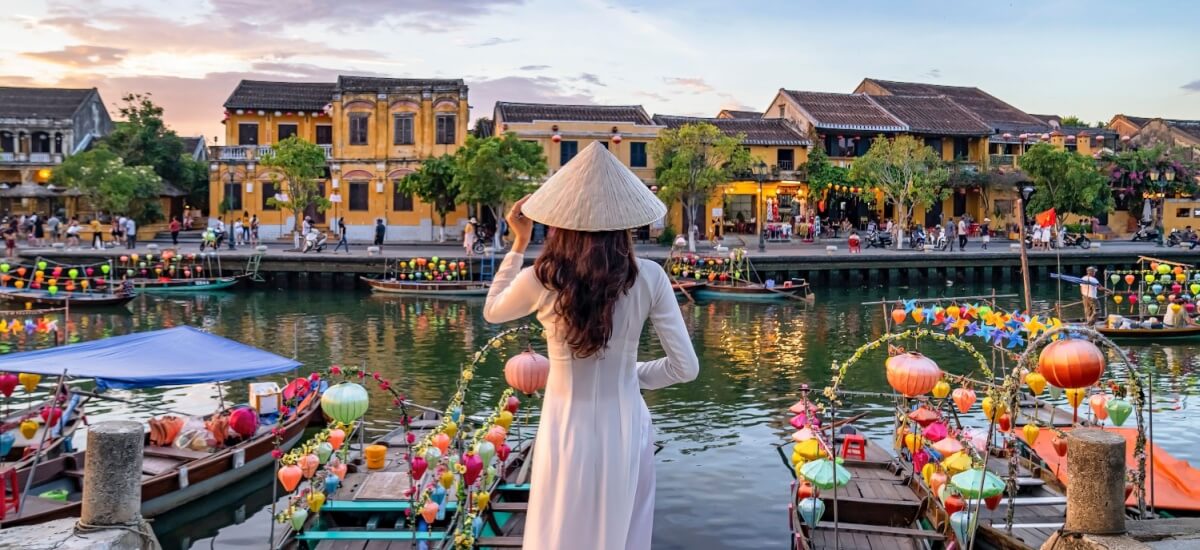
When buying property overseas, it’s important to be cautious and do all of your due diligence. You need to take all possible measures to protect yourself from scams and fraudsters.
The first issue to overcome is the language barrier. You’ll need to work with specialist agents and solicitors who speak both Vietnamese and English.
Here are some other important things to be aware of:⁷
Your search criteria will determine which is the right property for you. The most important factors will be location, the type of home and of course, how much you can afford to spend.
If you’re not already living there, it’s worth making a trip to the specific town or city in Vietnam you’re interested in. You’ll want to check out the local area and view properties, making sure to pay attention to local transport links and amenities.
It’s a good idea to do as much research as possible before committing to purchase a property. A crucial step is checking the title deeds and land registry to ascertain the legal status of the property, as well as if any building conditions, charges or other restrictions are registered against it.
You might also want to commission a building survey or inspection, which will flag up any major issues and give you a better idea of what you’re buying.
Before you can get the keys to your new home, you’ll have a final few tasks to check off your list.
These include taking out insurance, setting up your utilities and carrying out any energy efficiency renovations.
It’s strongly recommended to take out a buildings insurance policy starting from your completion date.
If you know when your completion date will be, it makes sense to get some essentials set up in advance of moving in.
A prime example is utilities, such as heating, power and water. Get these sorted as early as you can, and the moving process should be a little smoother.
If you’ve bought an older Vietnamese property, you might want to make some improvements to its energy efficiency. For example, rewiring the property or upgrading its air conditioning system.
This could make your living costs cheaper in the long run, as well as making the property more comfortable to live in.
And that’s it - our complete guide to buying property in Vietnam for foreigners.
We’ve given you all the info you need to start house hunting, including everything from fees, taxes and property prices to mortgages, pitfalls and how the buying process works in Vietnam.
And, if you want to save money while buying your new property in Vietnam, make sure to use the Wise account to send your international transfer. It’s not a bank account but offers many similar features.
Here are the main benefits for using Wise: |
|---|
|
Sources used:
Sources last checked on date: 29-Oct-2024
*Please see terms of use and product availability for your region or visit Wise fees and pricing for the most up to date pricing and fee information.
This publication is provided for general information purposes and does not constitute legal, tax or other professional advice from Wise Payments Limited or its subsidiaries and its affiliates, and it is not intended as a substitute for obtaining advice from a financial advisor or any other professional.
We make no representations, warranties or guarantees, whether expressed or implied, that the content in the publication is accurate, complete or up to date.

Read our essential guide to property tax in Greece for foreigners and UK expats, including taxes on buying, selling and renting out property.

Read our essential guide to buy-to-let mortgages for non-UK residents, including which providers offer them, eligibility requirements and costs.

Read our essential guide to property tax in India for foreigners and UK expats, including taxes on buying, selling and renting out property.
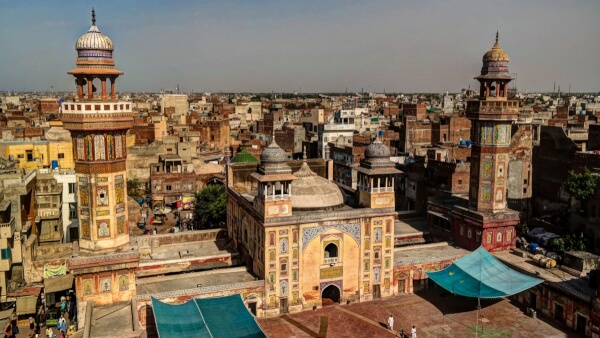
Read our essential guide to property tax in Pakistan for foreigners and UK expats, including taxes on buying, selling and renting out property.
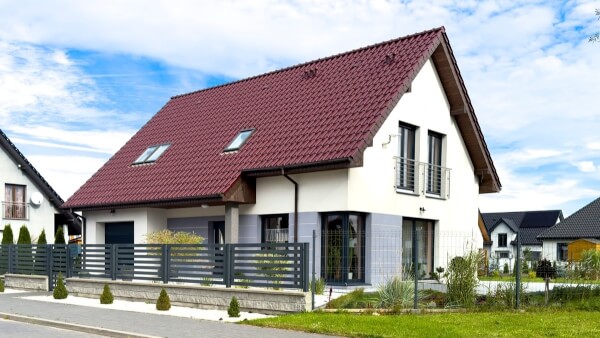
How much does it cost to build a house in Poland as a UK expat? Find out in our essential guide, covering everything you need to know.
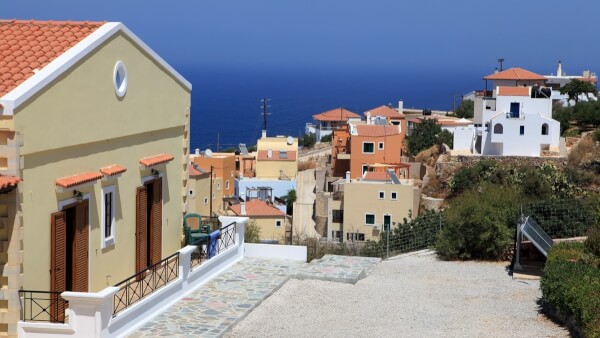
How much does it cost to build a house in Greece as a UK expat? Find out in our essential guide, covering everything you need to know.